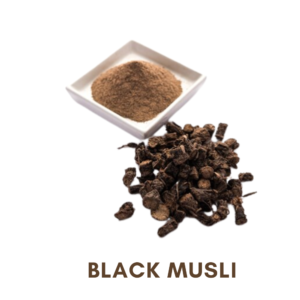1. Ashwagandha
Ashwagandha, scientifically known as Withania somnifera, is a medicinal plant that has been utilized in Ayurvedic medicine for many years. While it is often associated with stress reduction and adaptogenic properties, there is some evidence to suggest that Ashwagandha may play a role in supporting weight gain in certain individuals. Here are a few ways in which Ashwagandha may contribute to weight gain:
Stress Reduction: Ashwagandha is classified as an adaptogen, which means it may help the body better adapt to stress. Chronic stress can lead to weight loss or difficulty gaining weight in some individuals. By reducing stress levels, Ashwagandha may indirectly support weight gain.
Improved Sleep: Ashwagandha has been reported to have mild sedative effects and may help improve the quality of sleep. Sufficient and quality sleep is essential for overall health, and disruptions in sleep patterns can contribute to weight loss. By promoting better sleep, Ashwagandha might indirectly support weight gain.
Appetite Stimulation: Some studies suggest that Ashwagandha may have appetite-stimulating effects, leading individuals to consume more calories. Increased calorie intake can contribute to weight gain, particularly if someone is underweight or struggling to meet their nutritional needs.
Muscle Mass: Ashwagandha may have potential benefits for muscle strength and mass. As muscle weighs more than fat, improvements in muscle mass could contribute to weight gain.
2. Shatavari
Shatavari, scientifically known as Asparagus racemosus, is an herb that has been traditionally used in Ayurvedic medicine for various health benefits, including its potential to support weight gain. While scientific research on Shatavari’s specific impact on weight gain is limited, there are several ways in which it may contribute to this goal:
Calorie Intake: Shatavari is believed to have appetite-stimulating properties, which could lead to an increase in calorie intake. If an individual has a poor appetite or struggles to eat enough to meet their caloric needs, the use of Shatavari may help by promoting a healthier appetite.
Improved Digestion: Ayurvedic practitioners suggest that Shatavari can have a positive effect on digestion. Efficient digestion is essential for the absorption of nutrients from the food we consume. By supporting digestive health, Shatavari may help the body better utilize the nutrients in the diet, contributing to weight gain.
Balancing Vata Dosha: In Ayurveda, Shatavari is often recommended for balancing the Vata dosha. An imbalance in Vata is associated with traits such as dryness, lightness, and difficulty gaining weight. By promoting balance in Vata, Shatavari may help individuals who struggle with these characteristics to gain weight more effectively.
Hormonal Balance: Shatavari is considered an adaptogen, which means it may help the body adapt to stress and maintain hormonal balance. Hormonal imbalances can sometimes contribute to weight issues. By supporting hormonal equilibrium, Shatavari might indirectly aid in weight gain.
3. Vidarikand
Vidarikand, also known as Pueraria tuberosa, is an herb that has been used in traditional Ayurvedic medicine for various health purposes, including its potential to support weight gain. While there is some traditional use and anecdotal evidence suggesting its benefits, scientific research on Vidarikand’s specific effects on weight gain is limited.
Here are some ways in which Vidarikand may be believed to contribute to weight gain:
Appetite Stimulation: Like some other Ayurvedic herbs, Vidarikand is thought to have appetite-stimulating properties, which could lead to an increase in calorie intake. This may be beneficial for individuals who have a poor appetite or difficulty consuming enough calories to support weight gain.
Nutrient Absorption: Ayurvedic practitioners suggest that Vidarikand may have positive effects on digestion and nutrient absorption. Efficient digestion is crucial for the body to absorb and utilize the nutrients from food, contributing to overall health and potentially supporting weight gain.
Balancing Doshas: In Ayurveda, Vidarikand is believed to balance the Vata and Pitta doshas. Imbalances in these doshas are associated with traits such as dryness, lightness, and difficulty gaining weight. By promoting balance in the doshas, Vidarikand may help individuals who struggle with these characteristics.
There is some traditional use and belief in the benefits of Vidarikand for weight gain, scientific evidence is limited. Before incorporating Vidarikand or any other herbal supplement into your routine for weight gain, it’s advisable to consult with a healthcare professional. They can provide guidance based on your specific health status, potential interactions with medications, and overall well-being.
4. Safed Musli
Safed Musli, scientifically known as Chlorophytum borivilianum, is an herb that has been traditionally used in Ayurvedic medicine for various health purposes, including its potential to support overall well-being. While there is some traditional use and anecdotal evidence suggesting its benefits, scientific research on Safed Musli’s specific effects on weight gain is limited.
Here are some ways in which Safed Musli may be believed to contribute to weight gain:
Nutrient Absorption: Safed Musli is thought to have potential benefits for digestion and nutrient absorption. Efficient digestion is crucial for the absorption of nutrients from food, which in turn contributes to overall health and well-being, including maintaining or gaining weight.
Energy Boost: Some traditional uses of Safed Musli suggest that it may provide a natural energy boost. Increased energy levels could potentially lead to a more active lifestyle and increased calorie expenditure, influencing weight gain positively.
Muscle Growth: Safed Musli is believed by some to have potential benefits for muscle growth and strength. Since muscle weighs more than fat, an increase in muscle mass could contribute to overall weight gain.
5. Kali Musli
Kali Musli, also known as Curculigo orchioides, is an herb that has been used in traditional Ayurvedic medicine for various health purposes, including its potential to support overall well-being. Similar to Safed Musli, there is limited scientific research on Kali Musli’s specific effects on weight gain, and much of the information is based on traditional use and anecdotal evidence.
Here are some ways in which Kali Musli may be believed to contribute to weight gain:
Nutrient Absorption: Kali Musli is thought to have potential benefits for digestion and nutrient absorption. Efficient digestion is crucial for the absorption of nutrients from food, which in turn contributes to overall health and well-being, including maintaining or gaining weight.
Energy Boost: Some traditional uses of Kali Musli suggest that it may provide a natural energy boost. Increased energy levels could potentially lead to a more active lifestyle and increased calorie expenditure, influencing weight gain positively.
Muscle Growth: Like Safed Musli, Kali Musli is believed by some to have potential benefits for muscle growth and strength. An increase in muscle mass could contribute to overall weight gain, as muscle weighs more than fat.


